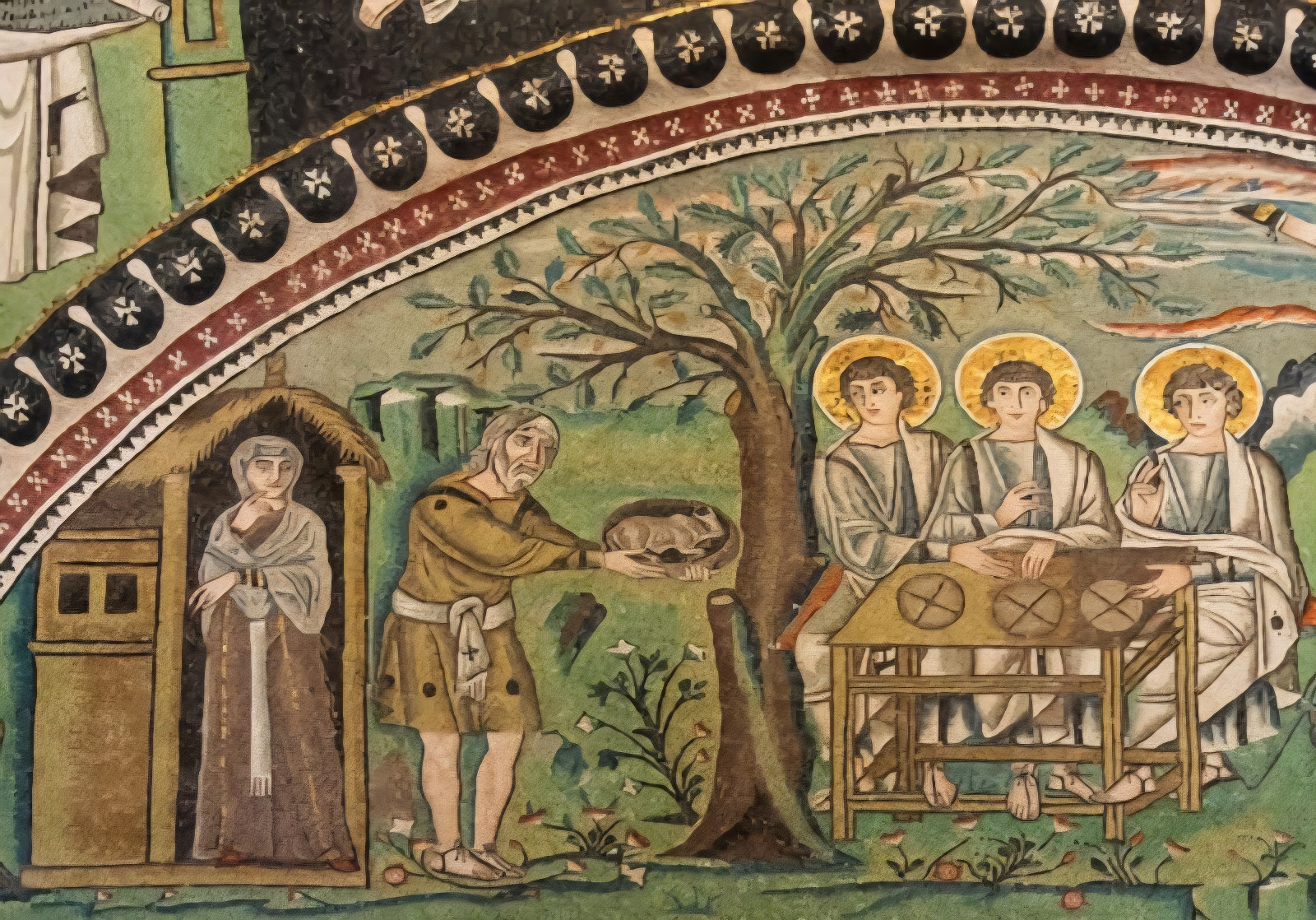What have we done instead? We praise Jesus. We worship Jesus. We proclaim, "Christ above all!" We do everything in our power to make other people look like us; pray like us; act like us. We have stopped doing what Jesus actually told us to do in order to fish for people. FOLLOW HIM!
Why is that? Because following Jesus is hard. It is dangerous. It means loving our neighbor, including our enemies. It means taking up the cross. It means going against empire. It means being red-tagged, vilified, and demonized. It means being crucified. It means offering one's life as a ransom for many.
My friends, Jesus is, right now, waiting for you and me to follow him to Galilee. By the sea. To go fish for people.
==============
*image, "St. Peter and St. Andrerw," by Peter Koenig (from the vanderbilt divinity library digital archives)








